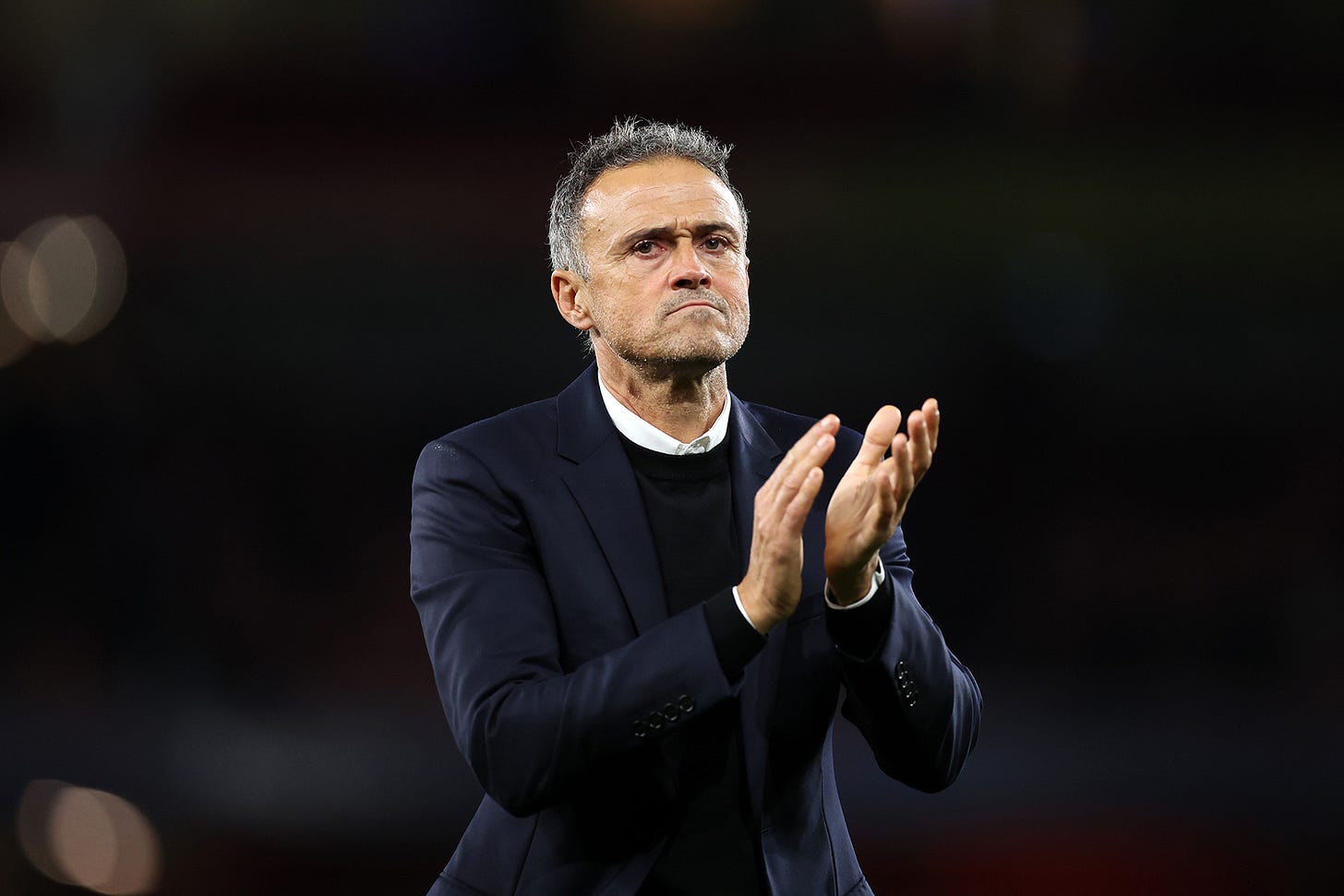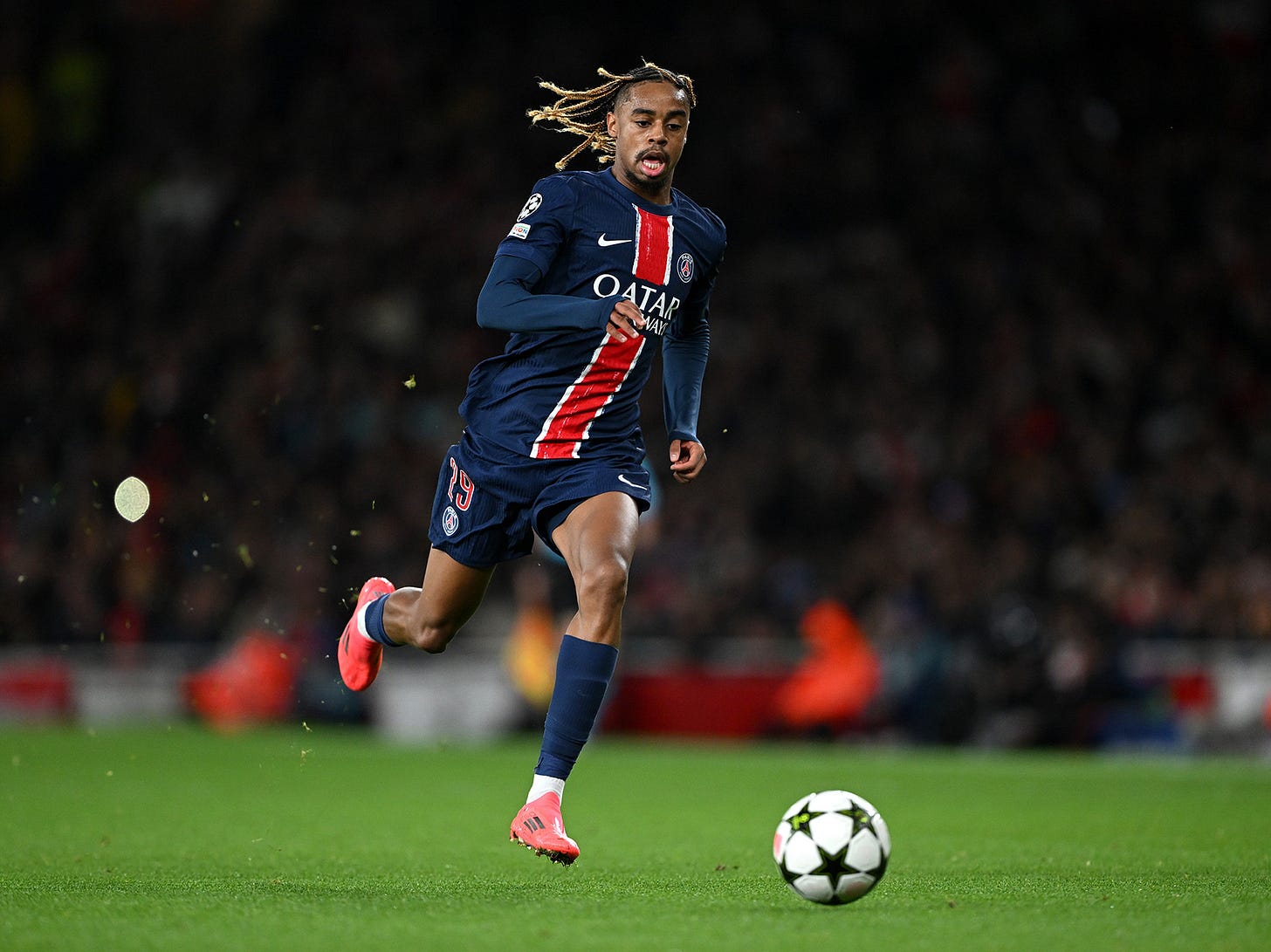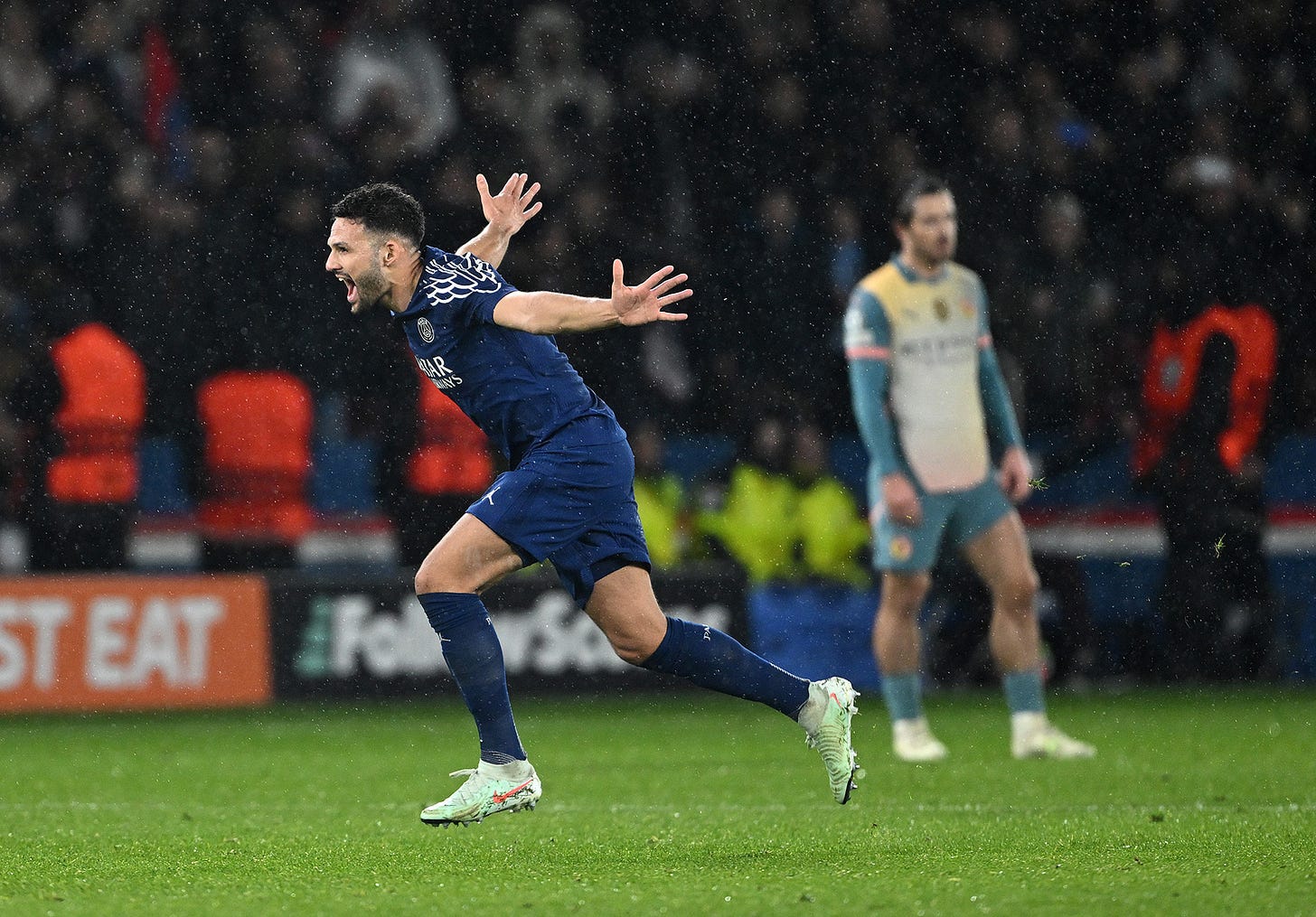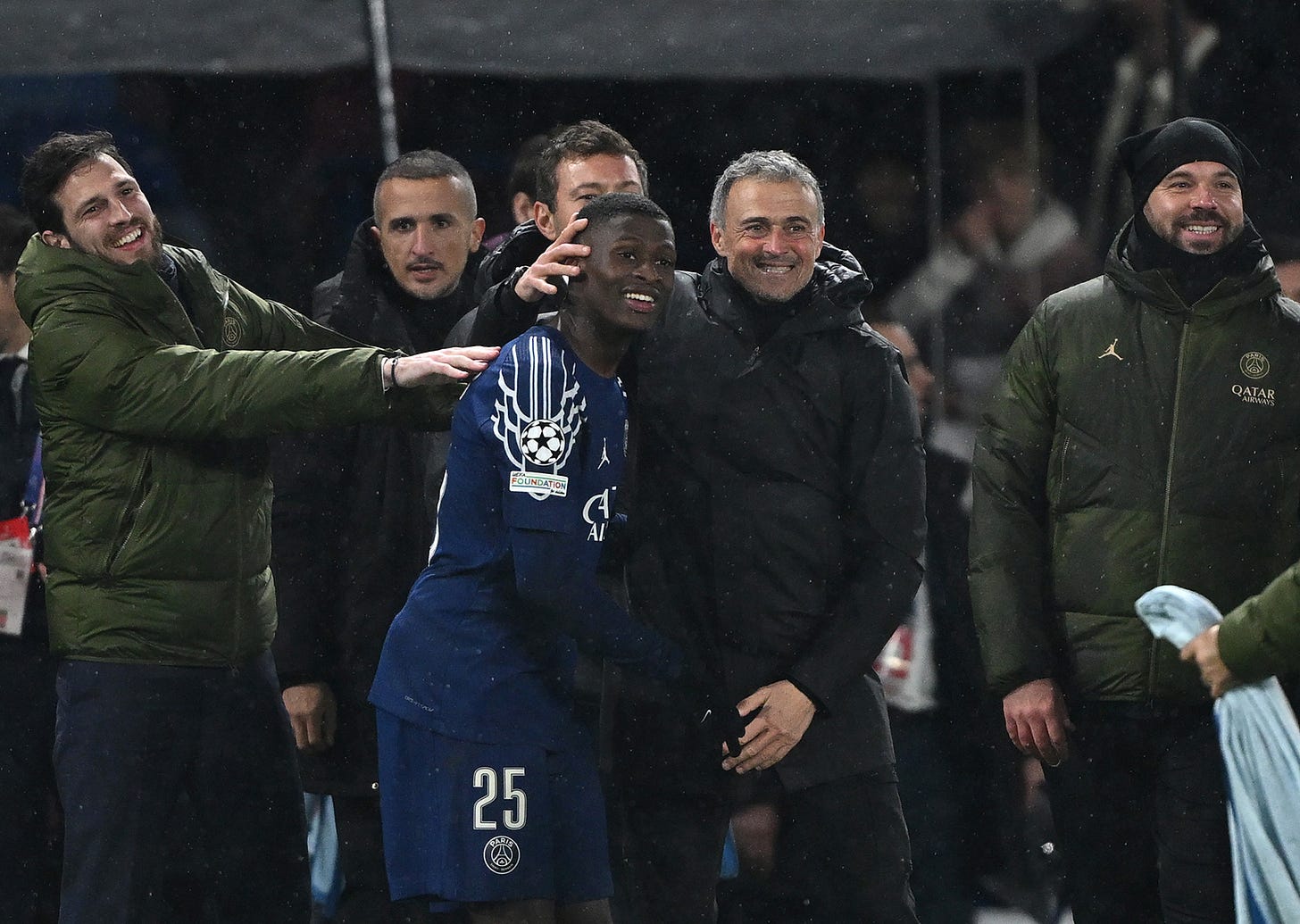✍️ The Psychology of PSG: The Lucho Era – From Galácticos to Flow
Paris Saint-Germain has found success this season by playing as a collective rather than relying on individual brilliance.
For years, Paris Saint-Germain represented a paradox in European football: a club with immense financial power, a galaxy of stars, and yet an inability to translate that individual brilliance into consistent, collective dominance on the biggest stages. My previous examinations of PSG’s psychology detailed this paradox—the fragility of the superstar model and the team’s struggles with identity, cohesion, and resilience. But now, under Luis Enrique, a shift has taken place. The "Lucho Era" is an evolution, if not a revolution, that has subtly but definitively reshaped the psychological makeup of PSG.
Gone is the dependence on individual genius; in its place, a team sculpted around Mihály Csíkszentmihályi’s concept of flow—the idea of “optimal experience,” where skill, challenge, and intrinsic motivation converge to create sustained excellence. This version of PSG does not merely play football; it lives and breathes a synchronized, immersive experience. It is no longer about who the biggest star is, but rather how the whole functions as a system.
The End of the Galáctico Model: A Psychological Breakthrough
PSG’s past was defined by the pursuit of icons—Zlatan Ibrahimović, Neymar Jr., Lionel Messi, and Kylian Mbappé. Each of these players, undeniably among the most talented of their respective eras, symbolized individual brilliance. But their presence also created an imbalance in team psychology. When the burden of performance fell so heavily on a few, the collective mental fortitude of the squad suffered.
This fragility was evident in high-pressure moments. The remontadas against Barcelona (2017), Manchester United (2019), and Real Madrid (2022) showcased the psychological vulnerabilities of a team reliant on individual moments of magic rather than a well-drilled, mentally robust collective. When adversity struck, PSG too often crumbled rather than adapted.
But the summer of 2023 marked a definitive departure from this model. Lionel Messi and Neymar left, and with Mbappé’s contract situation uncertain, the club adopted a new approach—one that placed emphasis on team dynamics, system coherence, and a new kind of psychological resilience.
Mihály’s Flow Theory and the Lucho Blueprint
Luis Enrique’s philosophy aligns closely with Mihály Csíkszentmihályi’s concept of flow. Flow occurs when an individual (or, in this case, a team) reaches a state of complete immersion in an activity where focus, skill, and challenge are in perfect balance. In this state, external distractions—pressure, fear, ego—fade away, replaced by a pure connection to the task at hand.
PSG’s current iteration embodies this concept. Under Luis Enrique, the team plays a fluid, high-intensity game based on collective movement, quick transitions, and intelligent pressing. This is not a team waiting for an individual to conjure something special; it is a team that operates as an interconnected unit, where every player is both empowered and responsible.
Consider Warren Zaïre-Emery, the young midfield prodigy who has become the metronome of this new PSG. He represents the psychological shift from dependence on a superstar to an intrinsic belief in system-based excellence. His maturity, intelligence, and ability to seamlessly link defense and attack are hallmarks of a player operating within a structured but liberating framework—a key element of flow.
Similarly, Ousmane Dembélé and Bradley Barcola have thrived under Lucho’s leadership, not as headline-grabbing megastars but as contributors to a high-functioning machine. Dembélé, previously known for his inconsistency and erratic decision-making, now plays with an intuitive understanding of movement and rhythm, finding moments of brilliance within the team’s larger tactical harmony.
Overcoming Psychological Barriers: The Evolution of Resilience
One of the clearest signs of PSG’s psychological evolution is their newfound ability to respond to adversity. In previous seasons, setbacks triggered collapses. Now, they respond with composure and tactical adaptability.
Take their UEFA Champions League group-stage match against Manchester City at the Parc des Princes. Falling behind by two goals after 53 minutes, the PSG of old might have panicked, over-relied on individualism, and lost their structural integrity. Instead, this team maintained its shape, gradually reasserted control, and executed equalizing goals (and then match-winning goals) born from collective precision rather than desperation. This is a team mentally equipped to manage momentum shifts—a hallmark of sustained psychological growth.
Another example is their recent performance against Brest in the Champions League. While PSG’s past knockout ties were often defined by a lack of determinative instinct, this time they demonstrated patience, pressing intelligence, and confidence in their system. The players looked engaged, locked in—not overmatched by the occasion but fully present within the moment, the essence of flow. Resultantly, PSG delivered an aggregate 10-0 outcome over two legs that reflected the actual talent and skill gap that should have been reflected in the matchup.
The Luis Enrique Factor: Coaching as a Psychological Catalyst
Luis Enrique’s approach is more than tactical—it is deeply psychological. His time with Spain’s national team and FC Barcelona demonstrated an ability to create environments where players buy into a collective philosophy, where egos are secondary to shared objectives.
One of his key contributions has been fostering a culture of autotelic motivation—where players find intrinsic satisfaction in the process rather than external rewards. This contrasts with the previous PSG model, where the acquisition of Ballon d’Or contenders created an extrinsically motivated environment driven by marketing, brand-building, and commercial appeal.
Luis Enrique’s PSG finds fulfillment in its rhythm, in the joy of executing tactical sequences, and in the synchronization of pressing triggers. This is a team in the flow state, and it is reflected in their performances.
The Road Ahead: A New Identity for PSG
This transformation does not guarantee success, but it provides a far more sustainable foundation than the galáctico era. While PSG may still experience setbacks, the psychological architecture of the team has been rewired. They no longer play with the weight of expectation crushing individual shoulders; instead, they embrace the challenge together.
The Lucho Era has redefined PSG—not just tactically but mentally. This is no longer a team searching for a defining individual; it is a team pursuing optimal experience as a collective. And in doing so, they may have finally found the psychological edge that eluded them for so long.
The psychology of PSG has evolved. The question now is: Can this version, built on flow rather than fragility, finally conquer Europe?
🎙️ PSG Talking Podcast: Paris Stuns Liverpool at Anfield
While they have a long way yet to go in the UEFA Champions League, Paris Saint-Germain sits atop the footballing world at the moment, having knocked out arguably the best team in Europe.












